The winter period can be a difficult time. If you’re finding things hard, you can contact one of the following services:
The Samaritans
The Samaritans offer a safe place for you to talk any time you like. You can talk in your own way about whatever’s going on. They have a helpline, email service, letter service and a self-help app.
Helpline open 24 hours a day, 365 days a year. Freephone 116123.
www.samaritans.org
Breathing Space
Breathing Space is a free, confidential phone and webchat service. It is for anyone in Scotland over the age of 16 who is experiencing low mood, depression or anxiety. Open 6pm to 2am Monday to Thursday, and 6pm to 6am Friday to Sunday.
Freephone 0800 83 85 87
breathingspace.scot
Shout
Shout is a free, confidential, 24/7 text messaging support service for anyone who is struggling to cope.
Text SHOUT to 85258
giveusashout.org
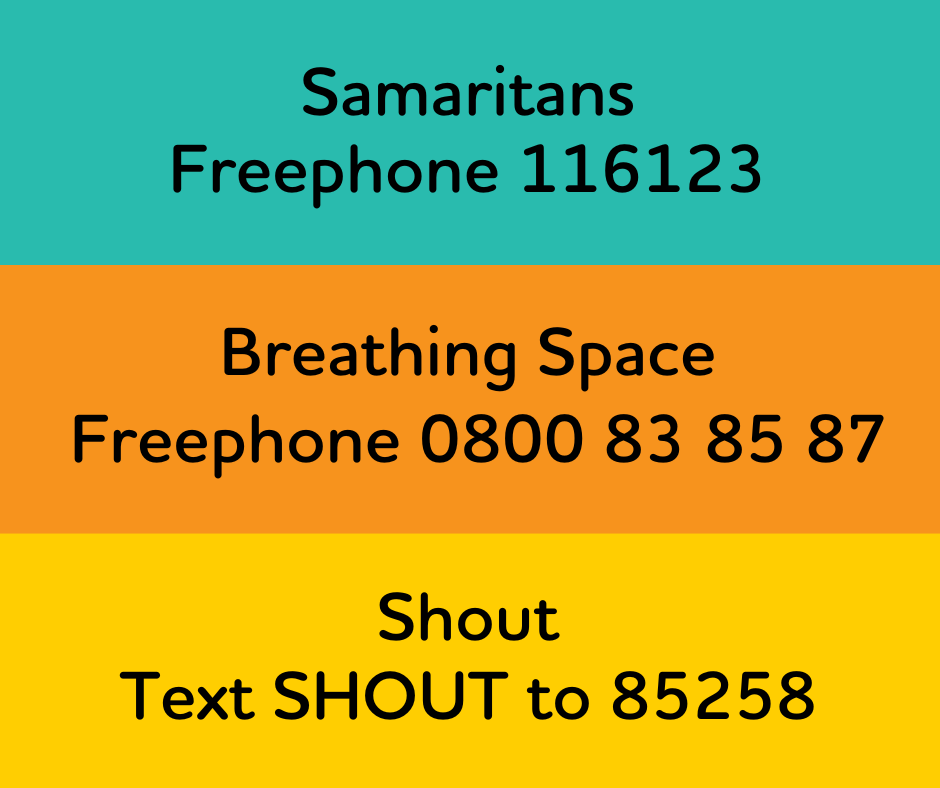
Between July and September 2022, we looked into how the increased cost of living affects the people we work with.
We also looked at how it affects our service. We did this by asking our Support Coordination team to complete a survey, and by looking at how people use hardship payments. These payments are unexpected costs to do with people’s basic needs. We also looked at the places people live in Scotland to see if the survivors we work with also live in areas that may be more affected by the cost of living crisis.
What did we find?
The cost of living is negatively affecting survivors’ mental health
Support Coordinators have noticed that people are feeling more stressed, worried and experience more negative thoughts as a result of the cost of living crisis. People are particularly concerned about their finances and their housing.
94% of survey respondents said they have heard survivors expressing concern about their finances ‘often’ or ‘very often’.
62% of respondents have heard concerns about people’s housing ‘often’ or ‘very often’.
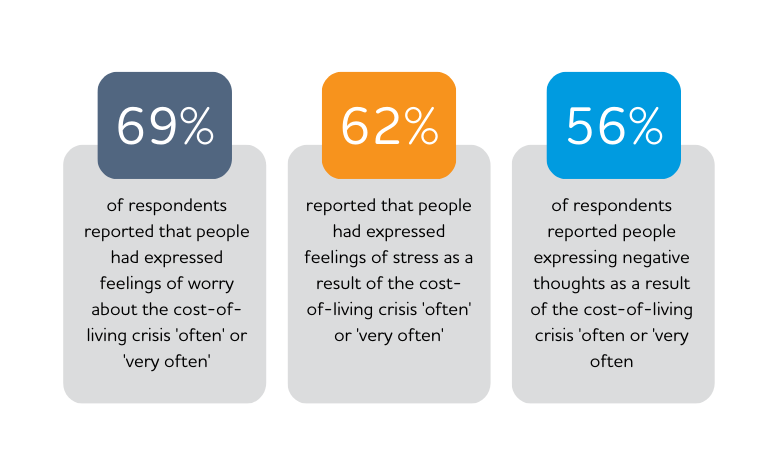
The cost of living impacts the work of Future Pathways
87.5% of respondents ‘agreed’ or ‘strongly agreed’ that the cost of living crisis is affecting the kind of support that Future Pathways provides.
The amount of money we spend on hardship payments has not increased. However, there has been a rise in the number of people accessing hardship payments over the last 9 months. We are having more discussions with people about budgeting and linking people to services like food banks and money management support.
Support Coordinators notice that survivors feel less able to focus on personal outcomes or longer term needs because they are under immediate financial pressure.
75% of respondents ‘agreed’ or ‘strongly agreed’ that the cost of living crisis is affecting the outcomes that we support people with. The increase in cost of materials also affects the cost of the services that Future Pathways commissions.
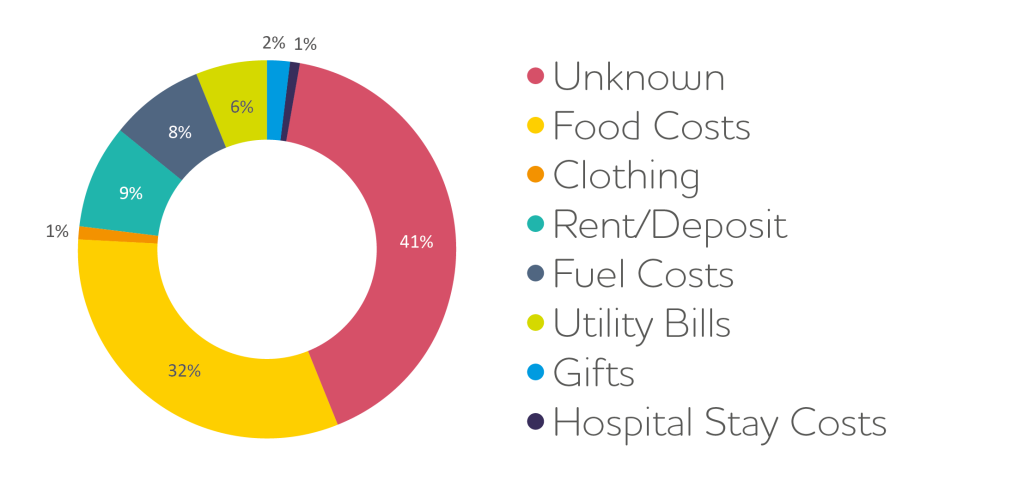
The people we work with live are more likely to live in deprived areas
74% of people registered with Future Pathways who live in Scotland, live in the most deprived areas of Scotland. This indicates that the cost of living crisis may disproportionately affect the people we work with.
The crisis presents significant barriers to many survivors, many of whom are already affected by existing inequalities.
We recognise that Future Pathways has a part to play in supporting people. We are not a crisis service, but we are adjusting our support in response to the current circumstances. We do this by developing partnerships with organisations such as Home Energy Scotland, and many others to help people access the information, advice, and support that they need.
We would also note that, even in times of financial crisis, it is still important that people are supported in achieving their individual goals.
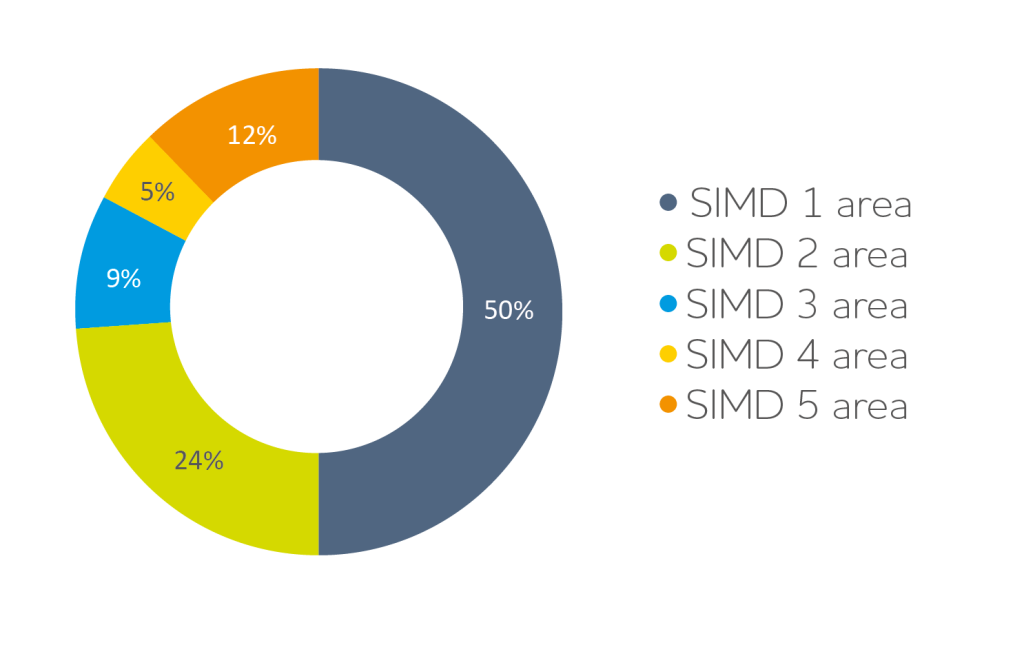
Support Coordinator Reflection:
One of our support coordinators describes the impact of the cost of living
”Many survivors I work with share their anxiety about how the cost-of-living will affect them this winter as the cold weather impacts people’s energy bills. People share that because their budget is absorbed by utility bills, there is little or nothing left over for “extras.” More people are sharing that they have started using food banks to eat.
It feels as though the Support Coordinator role is shifting in response to this crisis. For example, I have noticed that I am making more referrals to local money advice services, and I often research local food banks for people to access. I also find that people’s financial situation comes up earlier in the conversation and sometimes feeds into the conversations we have about outcomes.
Some people are finding it difficult to reflect on their medium to longer term goals because they are in “survival mode” and feeling worried about meeting their basic needs. This is particularly impacting on people who are already financially struggling or who manage chronic stress in their lives.
As a Support Coordinator, I think this situation may be particularly affecting people who we are not able to reach as easily, such as those who are homeless. It is also possible that people may stay in unsafe environments because they may not feel financially able to move.”
Further information:
The above feature on the cost of living is developed from research from our Quarterly Report. You can see highlights from our Q2 report and access the full report here.
If you’re seeking information on organisations and resources that can help with the cost of living crisis, view the Cost of Living resource.
Creativity can be a great way to boost your mood, relax, focus or feel confident.
We have a dedicated online Arts and Craft Winter Showcase featuring fantastic pieces from the people we support.
Check out their wonderful creations below. For groups of images, click on each one to view it at a larger size.
Chris’ drawings
“I’ve been drawing since I was a child and I find drawing therapeutic. I do drawings for people to do something nice and make them smile.”
Alanis’ creations
“I have been creating for the last 6-7 months. It keeps me occupied and it is good for the brain.”
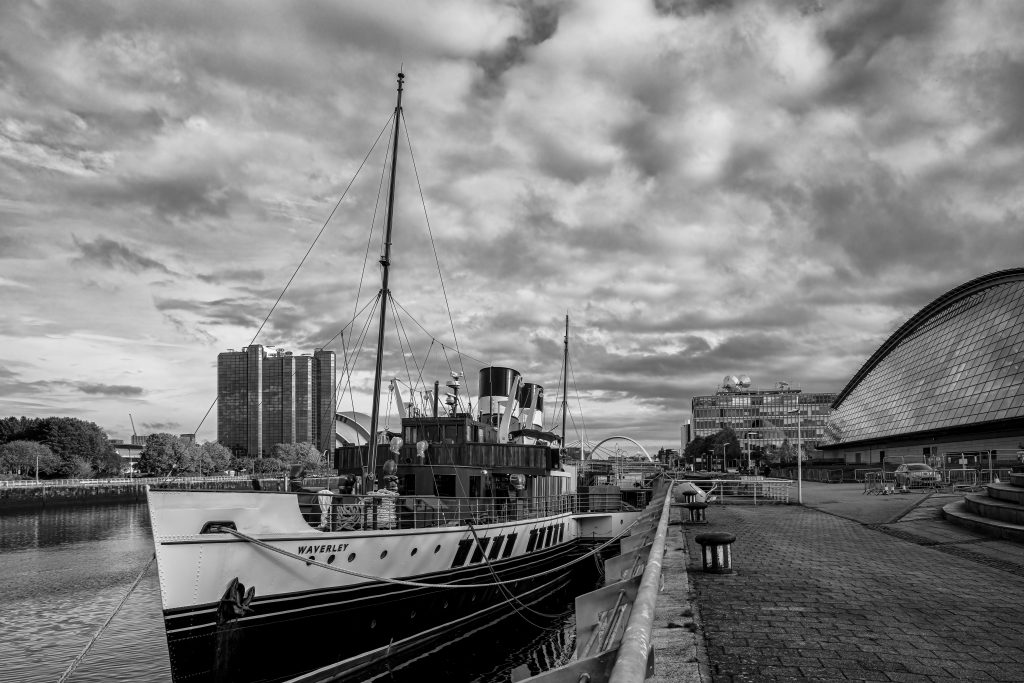
William’s photography
“Photography gives me a sense of purpose which helps me structure my spare time in a way that brings me a lot of enjoyment as well as providing a focus which is particularly important since I have retired from work.”
David’s paintings
“With over 30 years’ experience, my speciality is the painting of portraits although my work covers a variety of subjects including landscapes, animals, pets and still life. I work predominantly in oils and acrylics, but also create graphite portraits and drawings. I aim to make my landscapes colourful and realistic, reflecting my point of view and feeling for my surroundings.”
Wickerman’s candles, soaps and wax melts
“I love my craft as it keeps me grounded on a day to day basis.”
Derek’s portraits
“These pictures are done with paint on canvas. They were a lockdown project with the canvases provided by Future Pathways. During Covid lockdown I was really not able to go outside at all and art really helped me through that period. The pictures are now on display in Candleriggs gallery, Main Street, Alloa. Elton is my hero with Freddie and Debbie having played a part in my life as well.”
Fiona’s artwork
“The painting is inspired by Japanese Art and the mosaic is inspired by Egyptian art. I’ve loved art for as long as I can remember and try and empower other women, through art, and implement self-development.”
Eileen’s artwork
”Although it’s been a while since I have done any artwork, I particularly get creative when my mental wellbeing is down or I’m feeling overwhelmed. It calms me and gives me a distraction. I can express my feelings outward into my art in an expressive way. I’m not by any means Van Gogh, but having the confidence to share it with others is a big thing. I have learned along the way to accept it’s not everyone’s cup of tea but it’s mine.”
Lauchlan’s paintings
”I was in and out of care homes from early childhood, which probably put me on a wayward path in my teenage years and adulthood. I started painting in 1997 at the age of 47 I was incarcerated in a Chinese prison from 1991 until December 2003 for possession of cannabis resin. Teaching myself to paint was a great escape from the harsh reality of prison life in a communist country. I loved painting landscapes wandering into the fantasy world over mountains and feeling sand through my toes on white sand beaches. I eventually started doing Still Life and abstract. I appreciate the opportunity that Future Pathways give to its clients to share their art.”
If you’d like your own work to be featured on our website, email us at engagement@future-pathways.co.uk
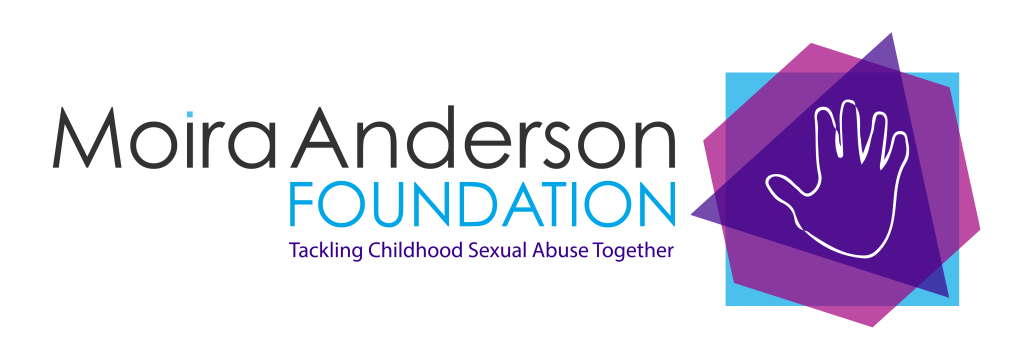
The Moira Anderson Foundation (MAF) serves Scotland from its base in North Lanarkshire. The organisation provides safety and support for adults and children affected by childhood sexual abuse. MAF was one of the first organisations to work with Future Pathways since we began in 2016.
The Foundation offers individual care and support to survivors and their families. It seeks to reduce the impact of trauma in their lives. The Foundation builds trust with survivors. It offers a range of therapeutic services in a safe and caring environment.
The Foundation has a range of different services, including:
Counselling and therapies
These can include talking therapy, youth counselling, art therapy and creative play.
Training and workshops
Their ‘Safe Hands’ training helps to promote personal safety strategies for everyone. The Foundation also does presentations in schools and other places to raise awareness.
Positive Steps
This is a dedicated programme to support adult clients with long-term health problems.
Glasgow Satellite Service (GSS)
This provides support for people in the Glasgow area at different locations, like GP services.
You can find out more about the work of the Moira Anderson Foundation at: www.moiraanderson.org
Visit our Delivery Partners page to see the full list of who we work with.
Our latest Quarterly Report is now available to view. It covers our work from July to September 2022. It shows what we’ve learnt, and includes key stats and feedback from those who access Future Pathways.
This quarter:
- We supported 225 people to access support.
- We worked with 62 delivery partners.
- 101 People started working with a Support Coordinator.
- We reduced our waitlist this quarter. No-one has waited for support for more than 6 months.
- People noted that the cost of living crisis is affecting their mental health.
- People told us that working with Future Pathways gave them choice and control. It also helped with managing their mental health.
What support did people seek in Q2?
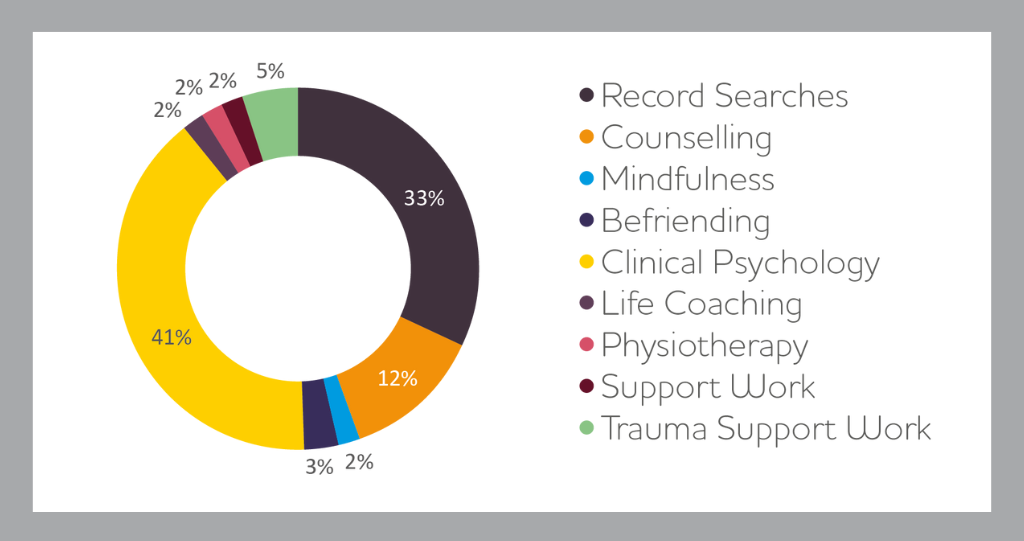
How we are responding to feedback
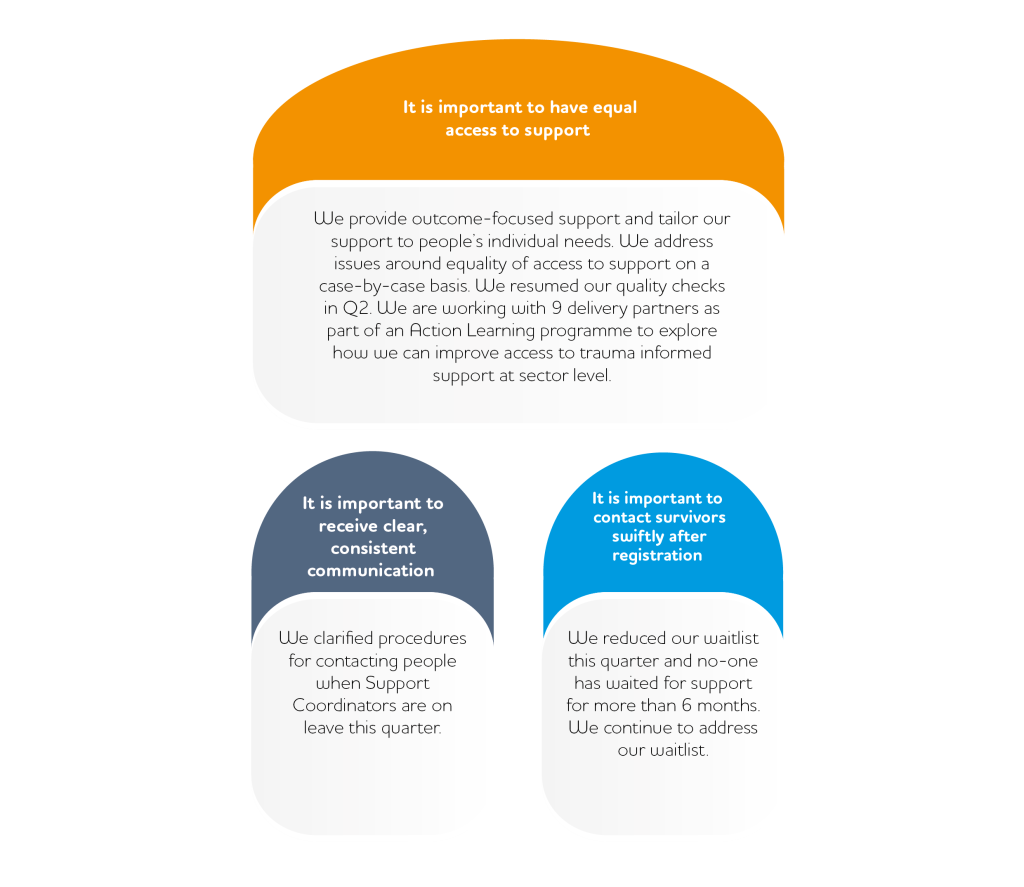
Improving our service
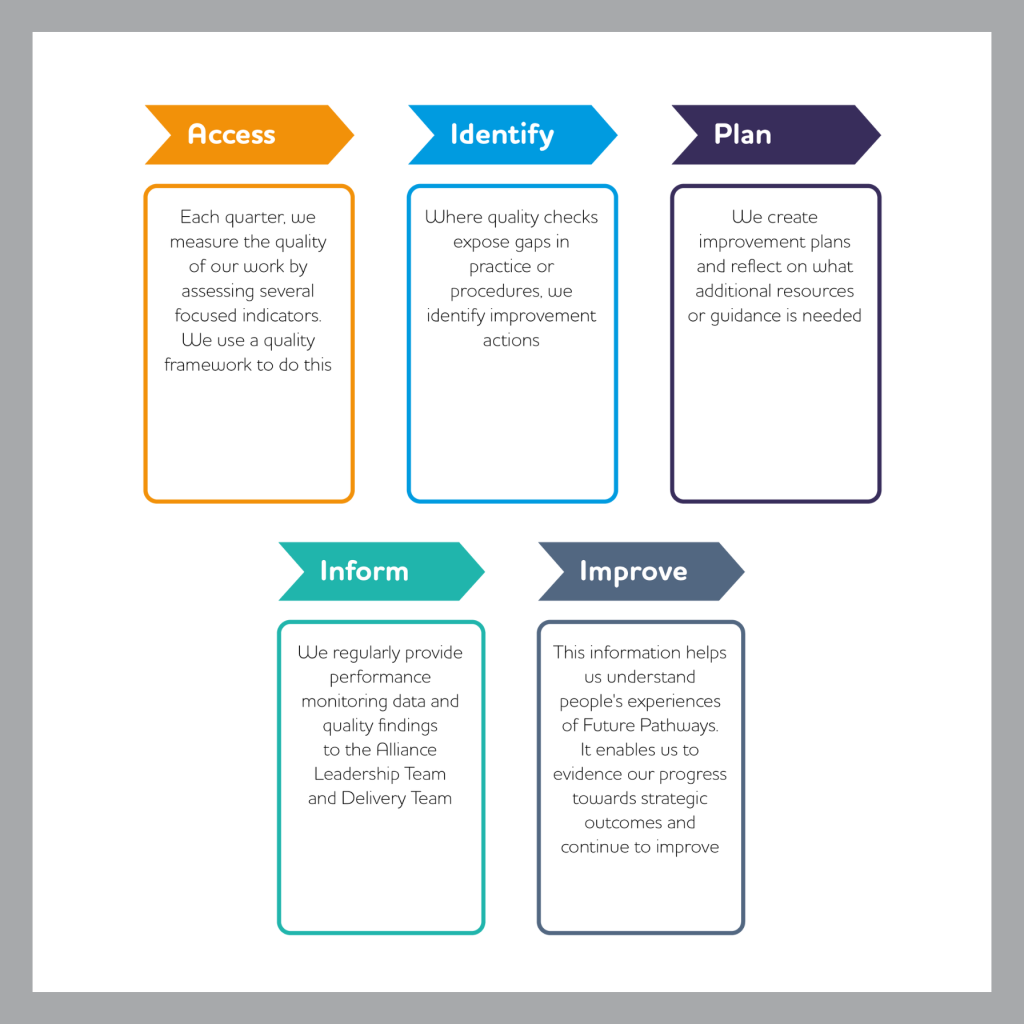
Our full report features further infographics, feedback and a breakdown of our financial spend. Read the full report.

Our Registration Line closes at 4pm on Wednesday 21st December 2022.
It will re-open again at 10am on Wednesday 4th January 2023.
Until we close for the Winter break, you can register in the following ways:
Phone us on Freephone 0808 164 2005. Our lines are open 10am to 4pm, Monday to Friday.
Email us at registration@future-pathways.co.uk If you email, please include a phone number so we can contact you to complete the registration process.
The winter period can be a difficult time. If you’re finding things hard, you can contact one of the following services:
The Samaritans
The Samaritans offer a safe place for you to talk any time you like. You can talk in your own way about whatever’s going on. They have a helpline, email service, letter service and a self-help app.
Helpline open 24 hours a day, 365 days a year. Freephone 116123.
www.samaritans.org
Breathing Space
Breathing Space is a free, confidential phone and webchat service. It is for anyone in Scotland over the age of 16 who is experiencing low mood, depression or anxiety. Open 6pm to 2am Monday to Thursday, and 6pm to 6am Friday to Sunday.
Freephone 0800 83 85 87
breathingspace.scot
Shout
Shout is a free, confidential, 24/7 text messaging support service for anyone who is struggling to cope.
Text SHOUT to 85258
